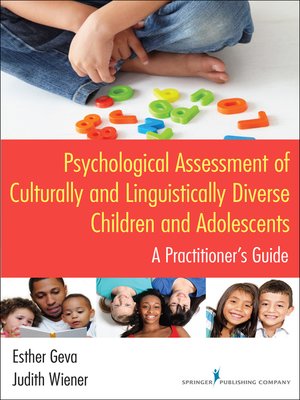Psychological Assessment of Culturally and Linguistically Diverse Children and Adolescents
ebook ∣ A Practitioner's Guide
By Esther Geva

Sign up to save your library
With an OverDrive account, you can save your favorite libraries for at-a-glance information about availability. Find out more about OverDrive accounts.
Find this title in Libby, the library reading app by OverDrive.



Search for a digital library with this title
Title found at these libraries:
| Loading... |
This is the only text for school and clinical psychologists and other mental health professionals to provide a systematic developmental framework for assessment, diagnosis, and consultation of children and adolescents from diverse linguistic and cultural backgrounds. Reflecting the most current research and grounded in the authors' extensive experience as clinicians and educators, it provides much-needed, practical strategies for helping students who require adaptations beyond traditional psychological assessment methods.
The authors describe the linguistic and cultural issues to consider when assessing students from diverse backgrounds, with a particular focus on children who are from immigrant and refugee families in addition to emerging bilingual learners and children of indigenous peoples. Specific assessment strategies are grounded in new research on the typical developmental trajectories of children who are learning a second language, how second language learning and learning disabilities affect students' academic achievement, the impact of culture and immigration experiences on cognitive, social, and emotional development, and culturally sensitive practice with children, adolescents, and families. The authors also provide a discussion of DSM-5 criteria as they relate to culturally and linguistically diverse children and adolescents.
International in scope, the book provides a roadmap for assessment that includes critical elements of decision-making in diagnosis and consultation with families and school staff. Replete with case studies, the book reflects a wide range of languages and cultures. It includes checklists and rating scales, lists of questions to be used in clinical decision-making, lists of "Do's" and "Don'ts" for quick reference, and "Myth vs. Fact" features. The book also features informal instruments developed by the authors that can be accessed online.
Key Features:






